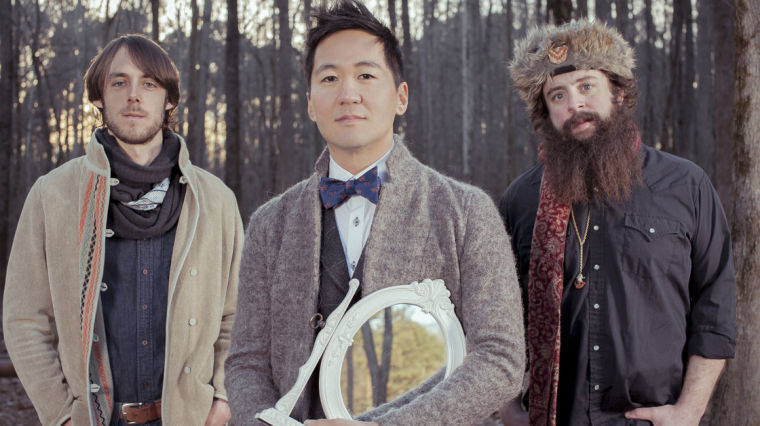
“Lighght was conceived with the idea of rebelling against strict forms of classical music and poetry, and it succeeds magnificently at blending complex lyrics with danceable synth-pop” — Jonathan Raeder
Seattle native Kaoru Ishibashi, a classically trained violinist known as Kishi Bashi, ventured into the world of indie music by touring with the likes of Regina Spektor and Of Montreal for the past several years, but he only released his first album, 151a, in 2012. The album didn’t smash the charts, but a number of the tracks were used in commercials, and music websites loved it, comparing the looping violin tracks and soaring vocals to Andrew Bird and Owen Pallett. The comparisons have some validity — all three play the violin as their main instrument — yet Kishi Bashi’s sound is more distinctly upbeat, more vivacious. There’s a lot going on in his music, but above all else is a joyful, clattering, beautiful obsession with sound itself.
His second album, Lighght (pronounced “light”), builds off 151a’s soundscapes and expands them. On his Bandcamp.com page, Kishi Bashi writes that the album’s title comes from a one-word poem — he found its blatant disregard for classical form appealing. As such, Lighght is built with classical instruments put to a much more light-hearted and fun use. There’s a track called “The Ballad of Mr. Steak,” and although it’s probably a metaphor, Mr. Steak is described as an actual steak, with hilarious lyrics like “The savory ending wasn’t drowned in salt and pepper” and “Mr. Steak you were Grade A.”
“The Ballad of Mr. Steak”aside, Lighght has far more depth to it than just songs about anthropomorphic pieces of meat: Kishi Bashi puts his violin in the background for a poignant acoustic ballad in “Q&A,” singing haunting lyrics such as “Two melting candles against the sun/ Modern angels they broke our wings in the wind/ For what?” as well as a chorus entirely in Japanese. In “Once Upon a Lucid Dream (in Afrikaans),” Kishi Bashi distills all the elements evident in 151a and injects them with a new spirit. There’s a violin in the forefront, handclaps, random acoustic instruments, a steady danceable rhythm, and all the fun and energy we’ve come to expect from his work.
Lighght was conceived with the idea of rebelling against strict forms of classical music and poetry, and it succeeds magnificently at blending complex lyrics such as “Darkened bridges sink away into the brackishness/ Swirling sin into a rainbow of atrophy” with danceable synth-pop, classical violin lines, songs about steak, sadness, happiness and horns, and the most essential element of indie baroque pop, long-winded song titles.
So yes, Kishi Bashi joins the ranks of Andrew Bird and Owen Pallett in the army of violin-wielding indie guys, but he remains separate because of the dream-like, joyous nature of his work. His songs still can be melancholic and nostalgic, but they’re always alive with soaring instrumentals and a sense of pulsing vitality that indie music sometimes lacks. Lighght definitely signals the next step of growth for Kishi Bashi, moving beyond his (admittedly great) songs perfect for iPod commercials and into something even more complex and intriguing. It’s safe to say Lighght is one of the best albums of the year in the world of indie pop.
If only it were more obvious how to pronounce that title.



